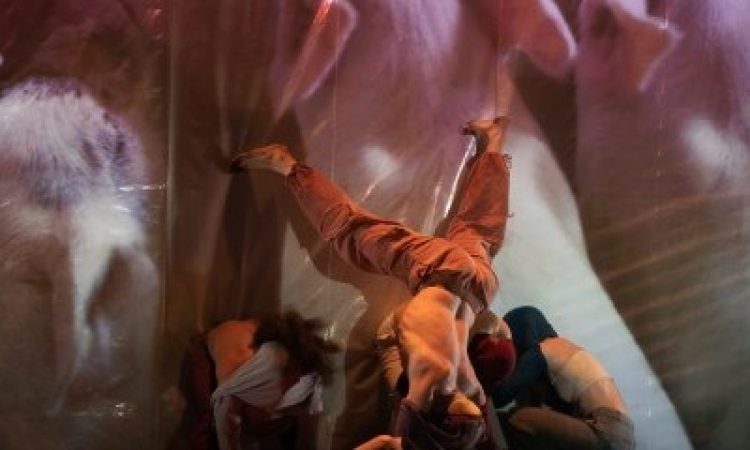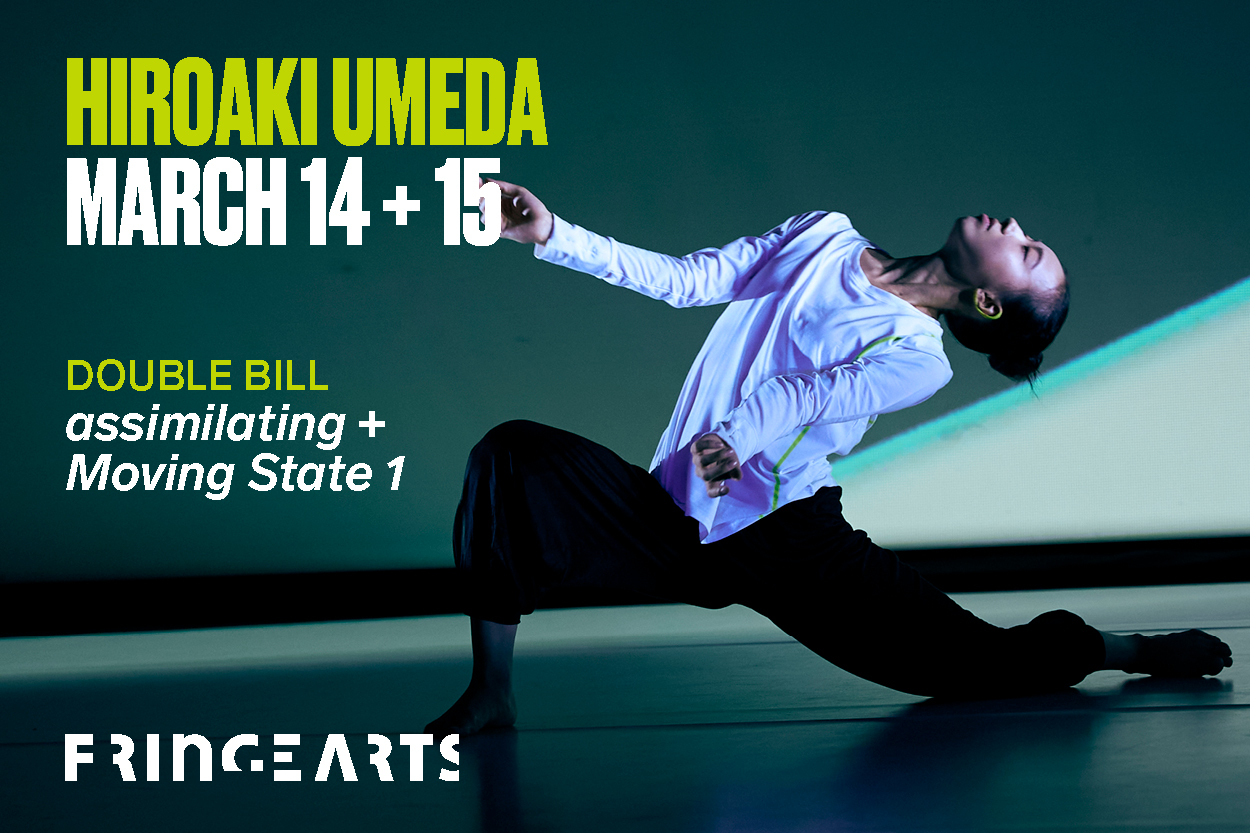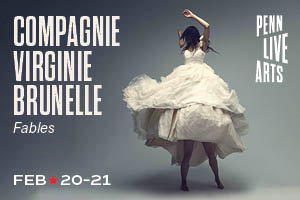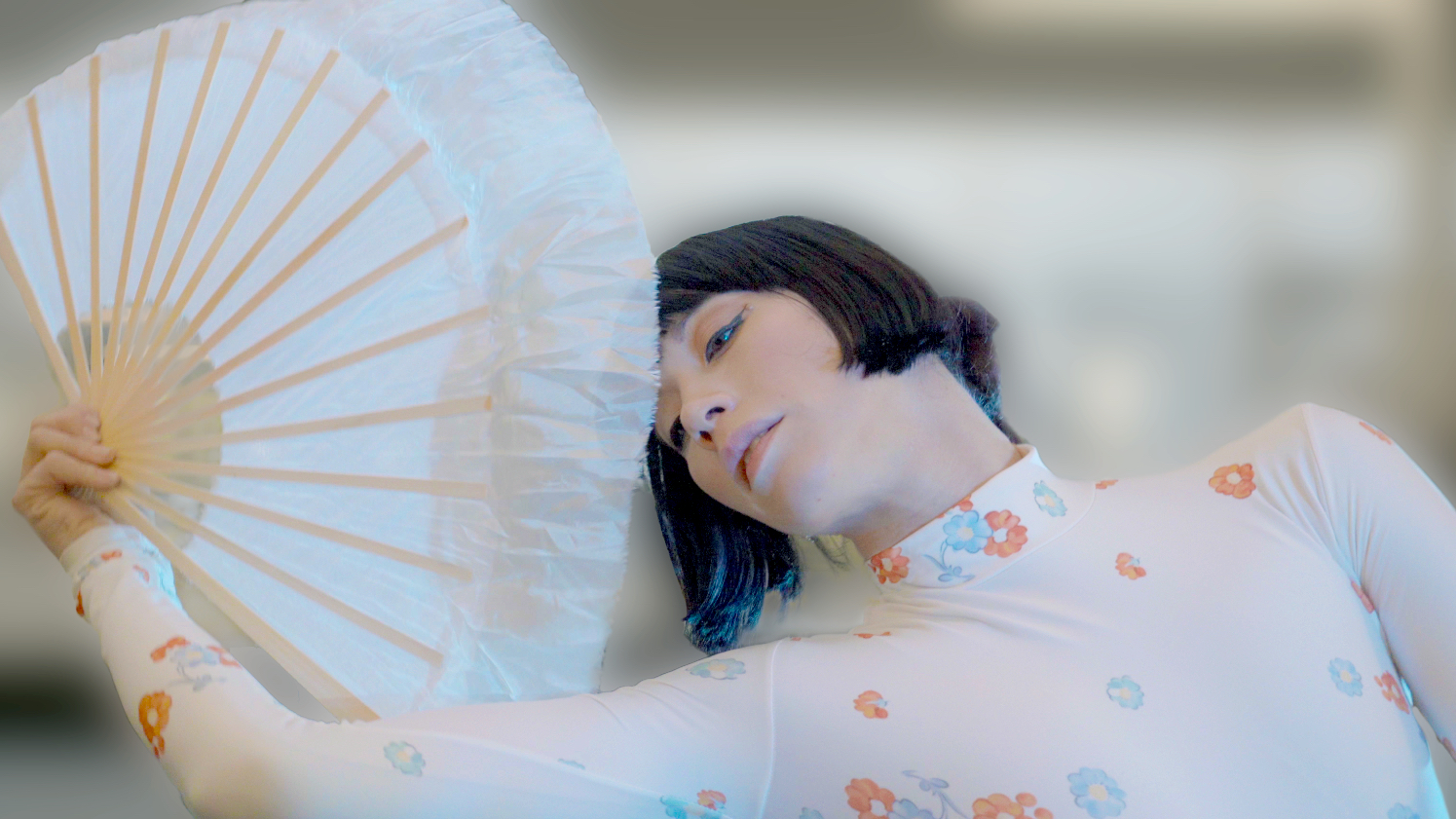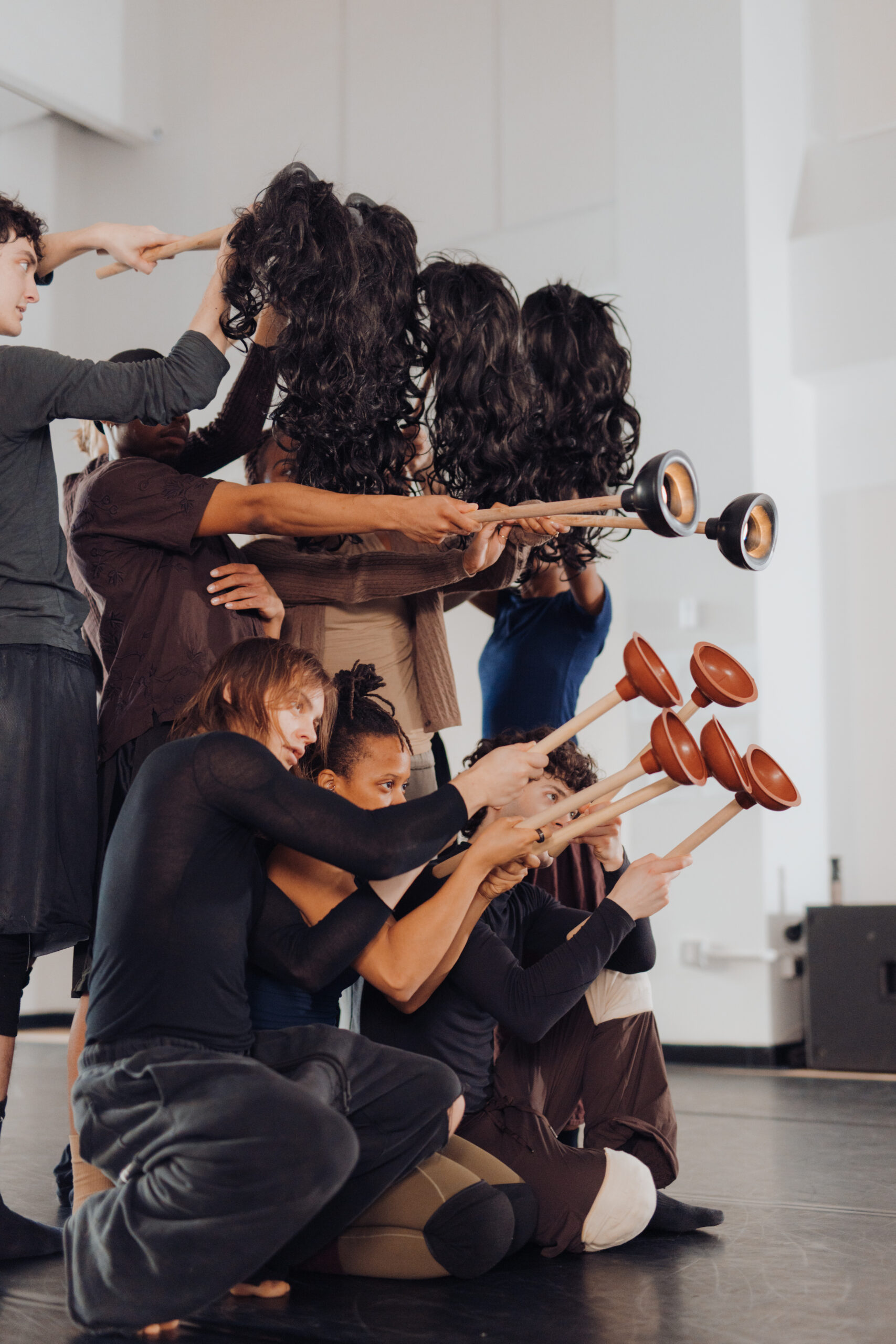René Girard, in Violence and the Sacred, writes that “When unappeased, violence seeks and always finds a surrogate victim. The creature that excited its fury is abruptly replaced by another, chosen only because it is vulnerable and close at hand.” Too often, humanity turns its head on the vulnerable, choosing to allow violence and distress to happen — xenophobia, racism, foreign wars. Disposable Bodies, choreographed by Silvana Cardell with Blanka Zizka as dramaturg, posits that animals, our voiceless companions on this planet, are another victim.
Walking into the Wilma’s proscenium theater, I immediately see a large, inflatable pig taking up almost the entire stage and hear the whirring of the air pump. This sound, though it stops quite suddenly as the piece starts, will continue to haunt the work. Much of the soundscore (designed by Maria Chavez) is animal bleats and squeals with raucous wind-static storms. The eye of a pig, with its long, lovely eyelashes blinking, is projected onto the belly of the inflatable swine. It’s warm and naive, seemingly unaware of its fated future.
Human bodies enter the space around the pig. Their shirts are pulled over their heads, and it’s as if the pig’s eye sees for them as they carefully and gingerly cross the stage. One dancer, now alone, crosses with a knife drawn, body at the ready. The ensemble emerges from a corner, jumping and careening with grace and athleticism, gesturing wildly and eventually flinging themselves onto the inflatable pig. They whip themselves around in its mass, and a live video feed turns on. We see one dancer, stripped naked, as another writes “ANIMAL” on her body: a condemnation.
Deleuze and Guttari write that the transformation of human to animal is most potent in the processing, the in-between stages. Cardell Dance Theater’s six-dancer ensemble seeks to investigate that in-between stage through embodiment. As the inflatable pig is raised up into the rafters of the stage, hanging limply like meat on a hook, we see a single dancer, naked, trapped behind a wall of plastic, wringing herself around and falling onto the floor, over and over. This “meat on hook” motif is seen again in the second section, when dancers repeatedly fall onto a pile of red kidney beans, signifying spilled blood. The ensemble lifts each of the fallen up, their bodies hanging limply like slaughtered pigs. Multiple times throughout the piece, folded rugs become a conveyor belt, and the bodies of the dancers fall unceremoniously onto the rolled-up fabric, mimicking the mindless, brutal mechanism of slaughterhouses.
Later, an animal is formed. Two dancers fold at the waist back-to-back, as a third curls herself upwards, resting her body on their folded ones. They cross the stage, moving slowly over the course of a few moments. This “animal” slowly dismantles when speared with a long, wooden stake. She writhes slowly around the stage as they follow her, keeping their spears attached, crawling toward an imagined safety.
The ending of Disposable Bodies is a rallying cry for help. The dancers, dressed in plastic wrap, unfold reflective mylar to cover the stage floor. This time, though, the plastic wrap doesn’t seem frightening or overwhelming – it’s familiar, it’s breezy. The dancers step carefully or gleefully jump and frolic – they are now both the animal and the human, a symbiosis of the two.
Cardell, through the lens of the Anthropocene, asks us: whose lives count as lives?
Disposable Bodies, Cardell Dance Theater, Wilma Theater, Bryn Mawr Performing Arts Series, October 6-8.
*Silvana Cardell is a Board member of thINKingDANCE.
(Dancers included Merián Soto, William Robinson, Mackenzie Morris, Muyu Yuan Ruba, Tyler
Rivera, and Ty Crux Jones-Blain.)
